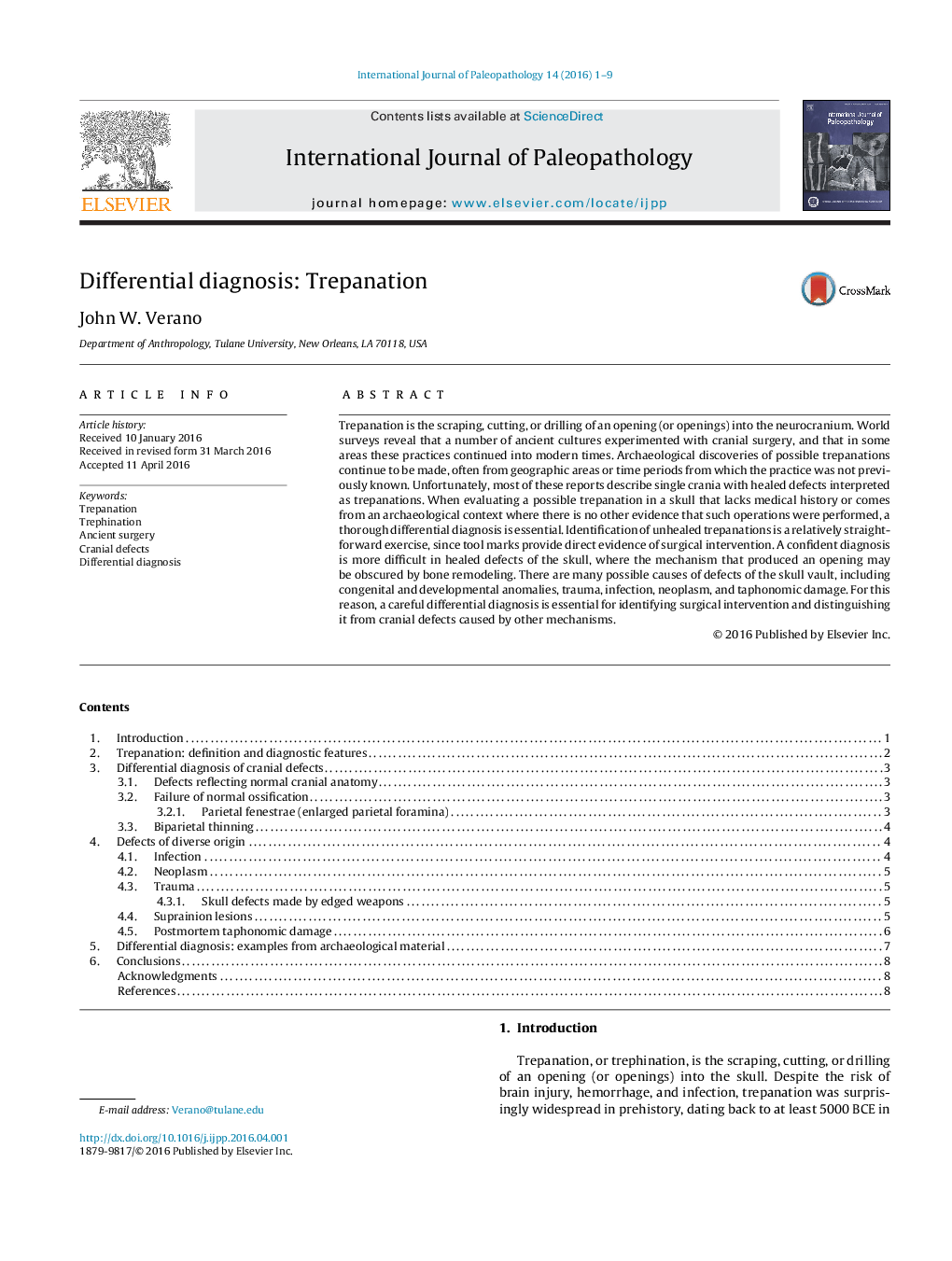| کد مقاله | کد نشریه | سال انتشار | مقاله انگلیسی | نسخه تمام متن |
|---|---|---|---|---|
| 101305 | 1422377 | 2016 | 9 صفحه PDF | دانلود رایگان |
Trepanation is the scraping, cutting, or drilling of an opening (or openings) into the neurocranium. World surveys reveal that a number of ancient cultures experimented with cranial surgery, and that in some areas these practices continued into modern times. Archaeological discoveries of possible trepanations continue to be made, often from geographic areas or time periods from which the practice was not previously known. Unfortunately, most of these reports describe single crania with healed defects interpreted as trepanations. When evaluating a possible trepanation in a skull that lacks medical history or comes from an archaeological context where there is no other evidence that such operations were performed, a thorough differential diagnosis is essential. Identification of unhealed trepanations is a relatively straightforward exercise, since tool marks provide direct evidence of surgical intervention. A confident diagnosis is more difficult in healed defects of the skull, where the mechanism that produced an opening may be obscured by bone remodeling. There are many possible causes of defects of the skull vault, including congenital and developmental anomalies, trauma, infection, neoplasm, and taphonomic damage. For this reason, a careful differential diagnosis is essential for identifying surgical intervention and distinguishing it from cranial defects caused by other mechanisms.
Journal: International Journal of Paleopathology - Volume 14, September 2016, Pages 1–9
